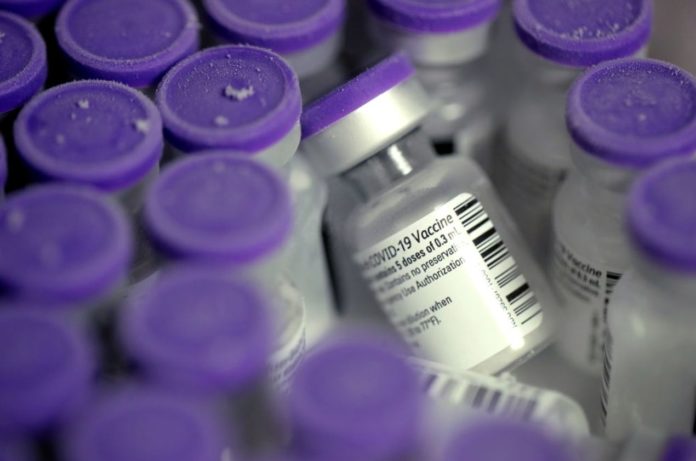A Danish study found the number of cases of heart inflammation (myocarditis or myopericarditis) following an mRNA COVID-19 vaccine is rare, even in younger age groups. This adds to the overall safety of mRNA COVID-19 vaccines.
It validates reports of increased risk following vaccination with BNT162b2 (Pfizer-BioNTech) and mRNA-1273 (Moderna), but it also shows that the absolute number of cases was low, even in younger age groups, adding to the body of evidence supporting the overall safety of mRNA vaccines for covid-19.
Myocarditis (inflammation of the heart muscle) and myopericarditis (inflammation of the heart’s outer membrane) are uncommon but deadly illnesses caused by a viral, bacterial, or fungal infection.
Recent reports and research have linked mRNA immunization to an increased risk of cardiac inflammation, particularly after the second dosage. However, no study has yet looked into the link using data from the entire population.
To find a link between mRNA vaccination and a hospital diagnosis of myocarditis or pericarditis, higher blood troponin levels (a measure of cardiac injury), and a hospital stay of more than 24 hours, researchers in Denmark examined national healthcare data.
Nearly 5 million Danish inhabitants aged 12 and above who received either the Pfizer-BioNTech or Moderna vaccine were included in the study.
Volunteers were tracked from October 1, 2020, to October 5, 2021, and a range of potentially influencing characteristics, such as age, sex, vaccine priority group, and underlying health issues, were considered.
269 patients had myocarditis or myopericarditis during follow-up, with 108 (40%) being between the ages of 12 and 39 and 196 (73%) being male.
Overall, the findings reveal a strong link between Moderna vaccination and myocarditis or myopericarditis, whereas Pfizer-BioNTech immunization was only linked to an elevated rate of myocarditis or myopericarditis in women.
Myocarditis and myopericarditis were more common after Moderna vaccination than after Pfizer-BioNTech vaccine. Despite this, the total number of incidents following either vaccine was modest, and the majority of the cases were mild.
In comparison to unprotected persons, 48 of 3,482,295 people who received the Pfizer-BioNTech vaccine developed myocarditis or myopericarditis within 28 days of immunization (an absolute rate of 1.4 per 100,000).
The absolute rate was 1.3 per 100,000 for women and 1.5 per 100,000 for men. Within 28 days of receiving the Pfizer-BioNTech vaccine, the absolute rate was 1.6 per 100,000 among 12-39 year olds, and just 1 per 100,000 among the youngest age group (12-17 year olds).
In comparison to unprotected persons, 21 of 498,814 people who received the Moderna vaccine developed myocarditis or myopericarditis within 28 days of immunization (an absolute rate of 4.2 per 100,000).
The absolute rate was 2 per 100,000 for women and 6.3 per 100,000 for men. Within 28 days of receiving the Moderna vaccination, the absolute rate among 12-39 year olds was 5.7 per 100,000.
When compared to unvaccinated people, both vaccines were linked to a 50% lower risk of cardiac arrest or death (the most severe forms of myocarditis or myopericarditis).
In comparison to uninfected people, there was a 14-fold greater risk of cardiac arrest or death 28 days after a positive covid-19 test.
Since this is an observational study, the researchers can’t pinpoint a cause, but they do point to certain potential sources of bias, such as increasing public awareness of vaccine adverse effects, as factors that may have influenced the findings.
They claim, however, that this was a well-designed study based on high-quality healthcare data for the entire population, and that the results remained mostly unaltered after further analysis, indicating that they can survive examination.
As a result, the researchers conclude that mRNA immunization with Moderna and Pfizer-BioNTech is linked to a higher risk of myocarditis or myopericarditis in the Danish population, but the absolute rate of myocarditis or myopericarditis following either vaccine is modest, especially in younger age groups.
They emphasize that the benefits of immunization should be considered when interpreting these data, and that larger multinational studies are needed to evaluate the risks of myocarditis or myopericarditis after vaccination in smaller groups.
Source: 10.1136/bmj-2021-068665
Image Credit: Getty
You were reading: Risk of myocarditis after mRNA COVID-19 vaccination is low, even in younger people
